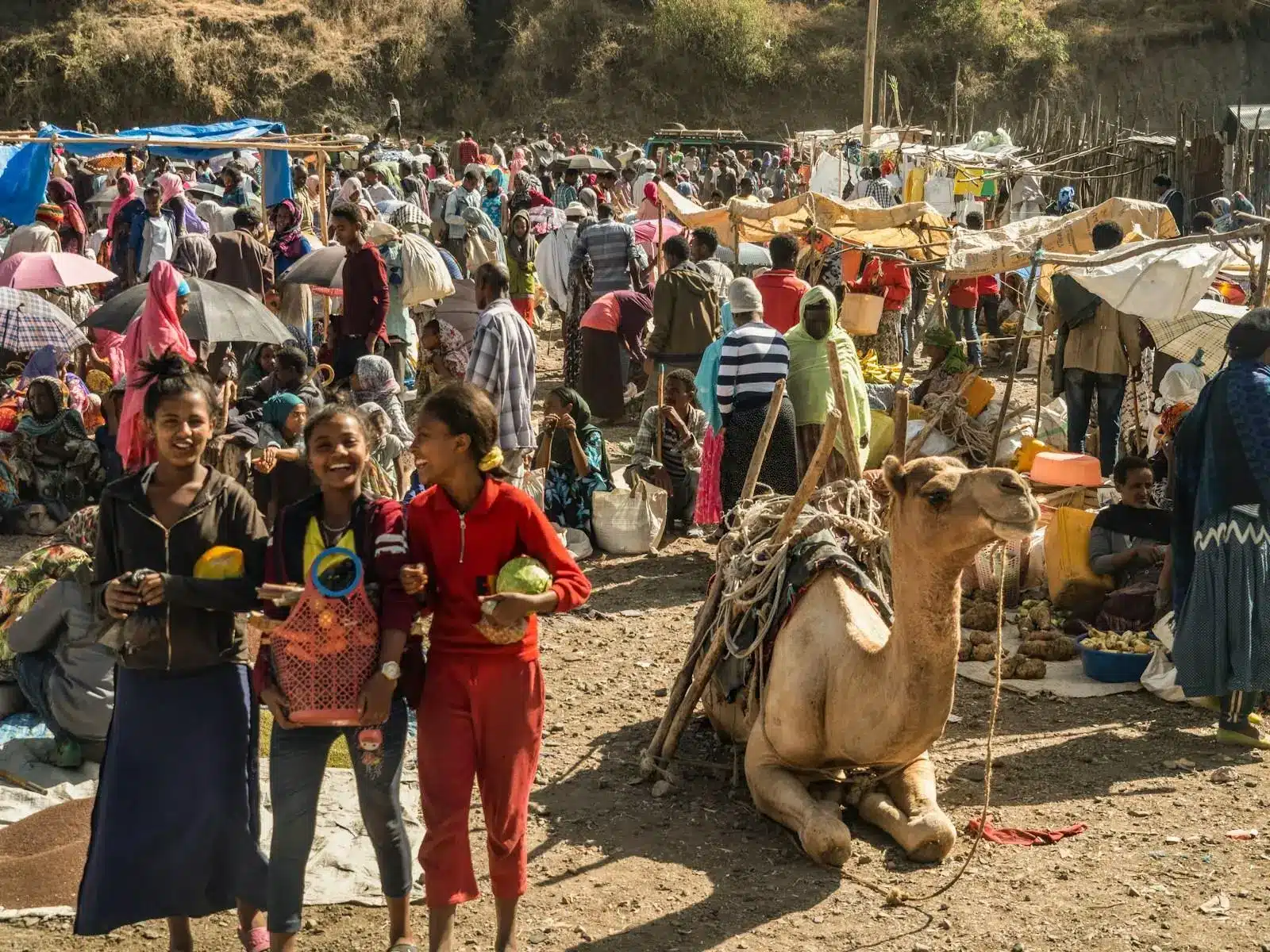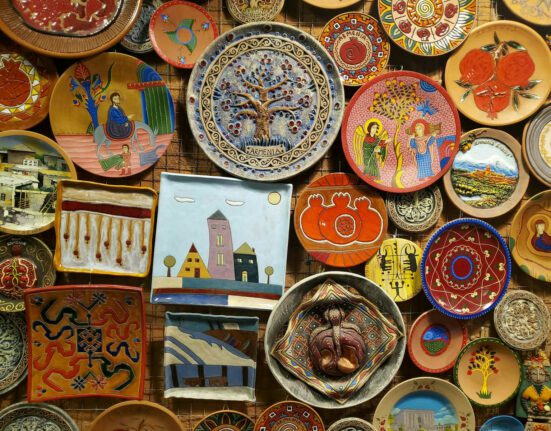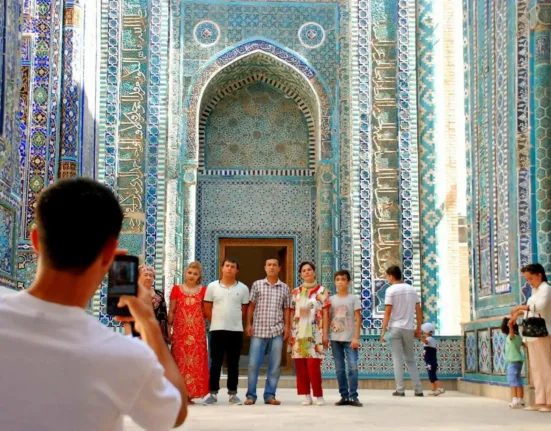Summary. Planning a vacation to Ethiopia can be an exciting and rewarding experience. This African nation offers unique cultural attractions, stunning landscapes, and fascinating history. Before taking a trip, travelers should research visas and vaccinations, determine a budget, decide which areas to visit, and book their flights, tours, and accommodations.
Are you ready to book a flight and get ready for an unforgettable vacation in Ethiopia? Ethiopia is one of the most fascinating countries in the world, offering spectacular scenery, welcoming people, fantastic cuisine, and plenty of unique attractions. From sightseeing in the ancient city of Gondar to visiting the colorful tribes of the Omo Valley, there’s something for everyone in Ethiopia. Planning a vacation to this amazing country is easy if you know which steps to take. So, let’s get started and show you how to plan the perfect Ethiopian vacation!First, consider your budget. Ethiopia is a great value destination, but there are still some costs to consider.
When setting your budget, remember to leave some extra for unexpected expenses and souvenirs. Next, decide what type of vacation you’d like. Ethiopia has something for everyone, whether you’re a beach bum, a culture vulture, or an adventure-seeking adrenaline junkie. Do you want to enjoy some cultural experiences or take it easy and soak up the sun? Some of the must-visit destinations in Ethiopia include the Simien Mountains National Park, the red-rock churches of Lalibela, and the Danakil Depression. Are you looking for a lively city experience? .
How To Plan A Vacation To Ethiopia
Planning a vacation to Ethiopia can be a fun and exciting experience. It is a country with a great history, culture and unique landscapes. You’ll find there are plenty of activities to keep you entertained and lots of places to discover. The first step in planning a vacation to Ethiopia is deciding where and when you want to go. With its variety of climates, landscapes, and cities, Ethiopia has something for everyone.
Or maybe you would rather trek in the Simien Mountains and visit the stunning Lake Tana? The incredible diversity of the country offers a range of possibilities for a holiday. When deciding when to go, it is important to keep weather in mind. Ethiopia is a large country, and temperatures vary across regions and by season.
The dry season, which lasts from late fall to late spring, is the ideal time to go hiking or trekking. When you know when and where you’re traveling, the following step is to reserve transportation and lodging. Booking flights well in advance is a smart move since prices tend to go up closer to the travel date. Internal flights may be used to travel between different locations, and for those who are feeling more daring, shared long-distance minibuses are a possibility. There are several options available for lodging, from five-star hotels to tent camping.
Where Is Ethiopia Located?
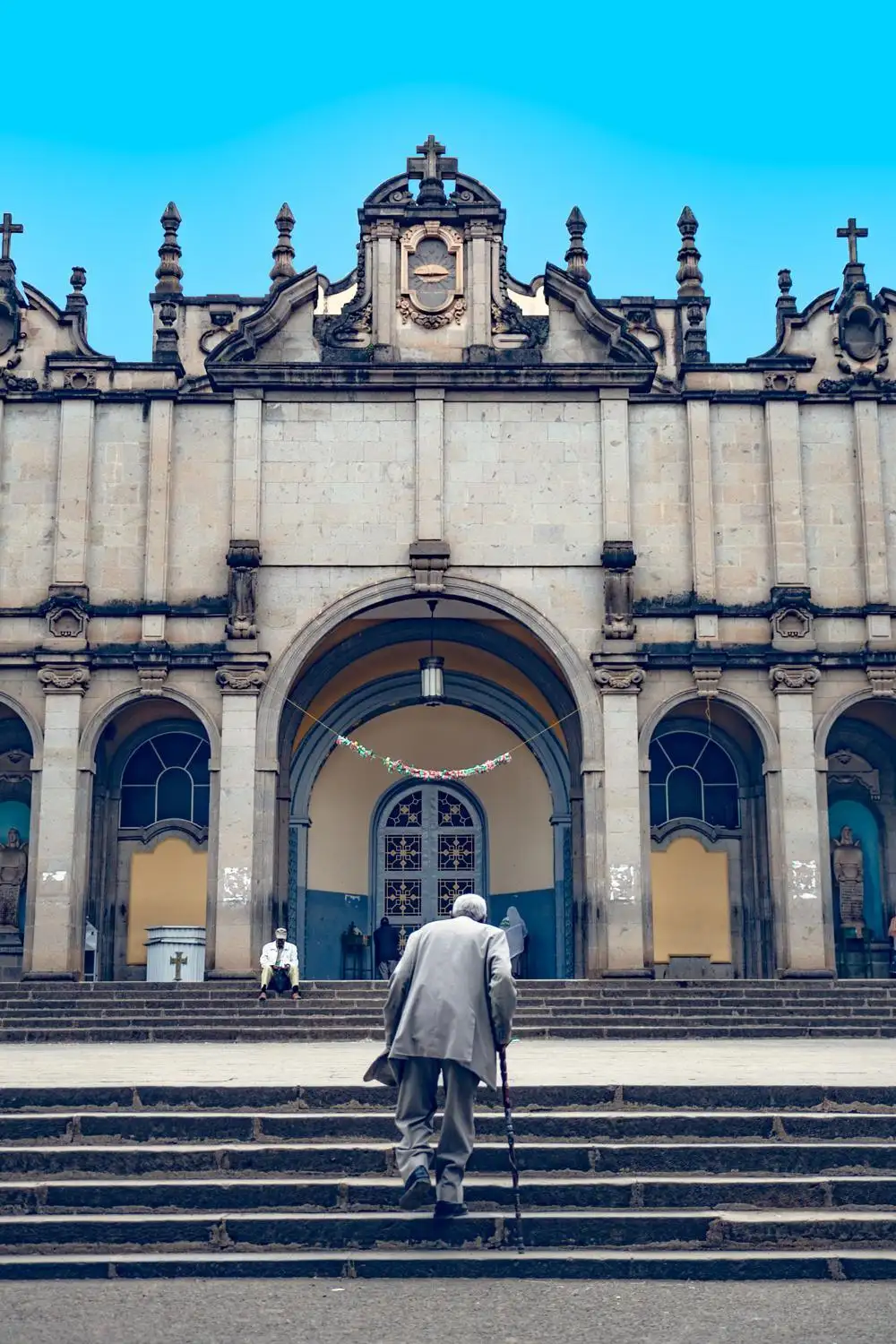
Ethiopia is a vibrant and diverse country. With over 80 million inhabitants, it’s the second-most populous nation in Africa and is home to a number of unique wildlife not found in other parts of the continent. It is the perfect destination for those looking to explore Africa and discover the country’s multicultural heritage.
This gives it a cultural quarter distinct from its neighbors, but still deeply rooted in ancient traditions and stories echoing through the ages. As a result, Ethiopia is a destination that will both captivate and challenge the curious traveler. Its ancient capital, Addis Ababa, is the 12th highest capital in the world at over 2300 meters above sea level and is the site of many major global events. The combination of wildlife and culture here is the perfect way to spend a truly unique ethiopian vacation.
How To Get Into Ethiopia?

You need to check if you need a Visa to enter the country. Citizens of some countries, including the United States and UK, will need a Tourist Visa to enter Ethiopia. If this is the case for you, you can apply for a visa through the Ethiopian Embassy nearest to you, or you can apply online. Second, you’ll need to have all the necessary paperwork ready.
You’ll need your visa, passport, and a valid ticket or eTicket with a printout. Many people also choose to carry certificates of vaccination with them; you should check the latest advice on recommended jabs before travel. After that, you’re good to go! Book flights to Ethiopia through reliable local airlines, or use international carriers to ensure that you will have a smooth journey ahead of you. After they approve your paperwork, you’ll get a stamp in your passport and be on track to explore the wonders of Ethiopia. Finally, research your destination. Ethiopia is a sprawling country with plenty of amazing places to see.
What Documents Do I Need To Enter Ethiopia?
What Are The Dos And Don Ts In Ethiopia?

Are you planning your next vacation in Ethiopia? There’s no doubt that Ethiopia’s vibrant culture and stunning scenery of majestic mountain ranges and grassy plains make it an unforgettable travel destination. Here are some of the Dos and Don’ts of travelling to Ethiopia:
Do:
- Respect their culture. Before arriving, familiarize yourself with the customs and etiquette of the country. Don’t walk into a church without taking off your shoes, don’t talk loudly when talking about matters of religion and always be respectful of the country’s beliefs and values.
- Dress modestly.
- Men should wear pants and shirts with collars and women should make sure to cover their legs and arms.
- Try their food. Ethiopian cuisine is rich and diverse and you’ll be hard-pressed to find a dish you don’t like. Don’t be afraid to try out the different flavors and dishes or indulge in a traditional Ethiopian coffee ceremony.
- Appreciate their art.
- Try their meals. Men should wear collared shirts and slacks, while ladies should cover their arms and legs. It will be difficult for you to discover a meal you don’t enjoy since Ethiopian cuisine is so varied and rich.
- Appreciate their craft. Don’t be hesitant to sample the various tastes and foods or participate in a traditional Ethiopian coffee ceremony.
- Don’t forget to bring souvenirs home for your friends and family!
Don’t:
- Don’t drink tap water – the water treatment in Ethiopia is not very effective.
- Make sure to drink bottled water or filtered water to avoid getting sick.
- Don’t carry large amounts of cash on you.
Ethiopia is still a largely cash-based society, but it’s best to keep your money and cards in a secure location. Credit and debit cards are accepted at some places, but it’s best to have some cash on hand just in case.
What Is The Best Month To Visit Ethiopia?

In general, October through January are the best months to go to Ethiopia because of the generally dry weather during this time of year, which draws more tourists than other months. Early October offers tourists temperatures in the mid-seventies, which hold steady until late November, when they start to drop.
During these months, humidity is low and roads are generally clear, making it easier for visitors to explore the country. For those seeking more outdoor adventures, January to February is an excellent time to explore Ethiopia’s diverse landscapes. Visitors can trek through national parks, bird watch in lakes, and rock climb in the hills – activities that are more easily navigated in dry weather. Anytime you go to Ethiopia, you’ll have an outstanding experience. There is a lot to see and do in the country, from seeing its famous ruins to relaxing on its lovely beaches.
Is Ethiopia Safe To Travel?

Right now, it’s essential to practice precautionary measures and be aware of potential risks. The main safety issue to consider is crime, so it’s best to avoid areas where muggings, pickpocketing, scams, and robberies are known to occur. It’s also advisable to stay off busy roads in the evening and carry a copy of your passport and travel documents with you at all times.
The country has adequate medical establishments, many of them operated by organs of the government. Hospitals provide assistance to travelers, although many treatments may be complicated. So make sure to bring your own medical supplies and a good health insurance policy that will cover any costs you may incur. When it comes to the environment, Ethiopia has some of the best landscapes the continent has to offer, from lush green hills to crystalline lakes. But as safety outdoors is concerned, be aware of wildlife, particularly large animals.
The good news is that the government is now actively investing in traveler safety initiatives and has been gradually improving safety measures over the last few years. There are also a variety of tour operators, taxi services, and travel companies that are reliable and can help you while you are traveling.
What Is The Best Part Of Ethiopia To Go To?
Ethiopia is home to incredible natural beauties and unique cultural experiences that you won’t find anywhere else in the globe, from old city ruins to breathtaking mountain peaks. You can make the most of your visit to this very varied and beautiful African nation with a little preparation and forethought. So where in Ethiopia should you travel to experience the finest that the nation has to offer? Here are some of the best areas to take into account while designing your ideal trip to Ethiopia.
This city, founded more than a century ago, is home to both contemporary hotels and ancient landmarks. The city is full of fascinating sites to explore, from the nearly 2000-year old ruins of the Axum kingdom to the neoclassical buildings of Emperor Haile Selassie. Take a stroll around the vibrant markets to find some one-of-a-kind mementos, then join the locals for supper at one of the many quaint eateries the city has to offer. Visit the magnificent Simien Mountains National Park if you want a once-in-a-lifetime encounter with nature. Nearly 50 unique animal species, including the imperiled Ethiopian Wolf, may be found in the area.
Tired after all the activities? Head to The Danakil Depression, one of the hottest places on earth. This stunning landscape located in the Ethiopian desert is full of colourful sulphur lakes, shifting salt flats, and mesmerizing underground volcanoes. Although it’s a barren land of extremes, it is one of the most remarkable natural wonders in Ethiopia.
Awesome Things To Do In Ethiopia
To get the most out of your stay, start planning well ahead of time. Make sure you research the best time of year to visit. You’ll want to avoid the rainy season between June and September as tourism is at its peak during this time.
Next up is to decide what kind of activities you’ll participate in. If you’re up for the adventure, consider visiting the Simien Mountains, where you can trek with an experienced guide and see some of the world’s most incredible views. Or go explore the rock-hewn churches of Lalibela set in an idyllic and spiritual setting. Wildlife fans should look no further than the Bale Mountains to spot the rare and secretive Ethiopian wolf. History buffs can visit the archaeological sites of Axum and the 17th-century Harar Jugol, a complex of ancient walled cities featuring both Islamic and Ethiopian cultures.
And of course, foodies will love the delicious dishes of Ethiopia, with favorites like Injera bread and shiro wot. If you’re looking for relaxation, Ethiopia has plenty to offer. Head over to Gondar, a city known for its magnificent castles, or visit the mineral-rich hot springs of Negele. For stunning views, take a drive through the Danakil Depression and gaze upon the world’s lowest point of altitude beyond sea level and the geologically active Erta Ale, a shield volcano that has been emitting lava for the last five centuries!
Ethiopia Travel Advices (Language, Currency, Transport Options)
U. S. dollars, euros, and other hard currencies are accepted in areas frequented by tourists. Travelers have a number of options when it comes to getting around Ethiopia. Train service connects the major urban centers of Addis Ababa, Harar, Dire Dawa, and Awassa. However, many travelers will find Ethiopian roads to be the most reliable mode of transport.
If you’re feeling brave, consider taking a road trip on the infamous ‘Road to nowhere’. When traveling to Ethiopia, make sure to have proof of a round-trip ticket, a valid visa, and enough money to cover the length of your stay. Tourist cards can also be purchased and are valid for 30 days. Whatever your plans in Ethiopia, make sure to research thoroughly before embarking on your journey. With its combination of ancient religions, vibrant cultures, and stunning landscapes, Ethiopia is an unforgettable travel destination. So grab your bags and go explore!
Ethiopia Travel Cost – Average Price of a Vacation to Ethiopia
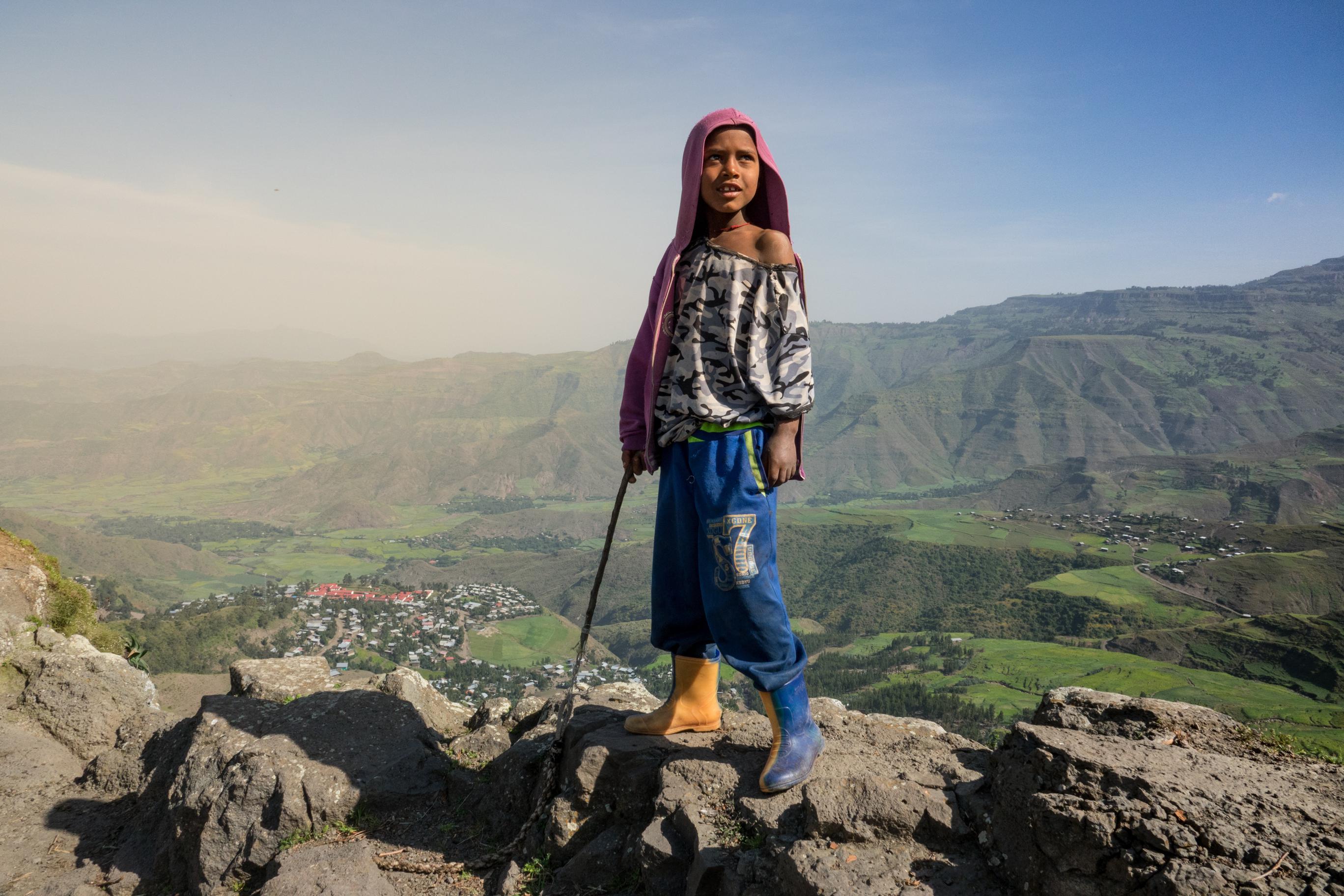
A trip to Ethiopia doesn’t have to break the bank; it’s very budget-friendly. From the stunning mountain tops in Simien National Park to the awe-inspiring Tigray Plateau, Ethiopia offers a great mix of affordable activities, sights and attractions. An average traveler will spend around $525 per week on accommodation, food, sightseeing, and other expenses. That’s a really good deal for a weeklong vacation in Africa!Accommodation wise, it’s usually a lot cheaper to stay in hostels or guesthouses. These are often very run-down, but they often come with great views at a fraction of the cost of a hotel.
Ethiopia is a fairly affordable destination, so traveling there doesn’t have to break the wallet. Ethiopia provides a wide range of reasonably priced activities, sites, and attractions, from the breathtaking mountain peaks in Simien National Park to the breathtaking Tigray Plateau. The typical visitor will spend $525 a week on lodging, food, activities, and other costs. That’s a fantastic price for a week of travel in Africa!Hostels and guesthouses often cost far less than hotels for lodging. These are sometimes quite dilapidated yet can provide fantastic vistas at a far lower price than a hotel.
You may want to think about staying at a hotel for a more opulent experience. The cost of a nightly stay might vary from $30 to $200, depending on the area and facilities. In Ethiopia, eating out is also pretty affordable. You may sample a broad variety of regional cuisine for anywhere between $3 and $10 every dinner. Of course, you can also find cheaper snacks and lighter meal alternatives.
Ethiopia has some breathtaking natural beauty for tourists to enjoy. There are some of the best vistas in Africa from the Simien Mountains, but there are also some fascinating historical and archaeological sites. Ancient remains of a once-powerful monarchy may be seen at Axum, one of Africa’s oldest cities. The mysterious Obelisk of Axum, one of the eight wonders of the ancient world, is also located there. The Blue Nile Falls, Bale Mountains National Park, and the rock-hewn cathedrals of Lalibela are some more notable tourist destinations. The majority of the locations charge $3 to $10 for admission.
Conclusion
Planning a vacation to Ethiopia can be an incredibly exciting experience. From the fascinating and diverse cultures to the jaw-dropping landscapes, there’s so much to explore in this east African country. But it’s essential to plan properly in order to make the most out of your stay.
Ethiopia is generally quite affordable for travelers, but it’s still important to view costs ahead of time. Accommodations, transportation, attractions, and food can all add up quickly, so it’s essential to have a plan in place. Decide on how much you want to spend on each aspect, so you don’t end up with any surprises. Once you know where you want to go and what you’ll be spending, it’s time to pick the perfect dates. Ethiopia experiences two distinct rainy seasons, so you’ll want to avoid those months if possible. It’s also worth noting that most tourist sites and attractions are closed during the weekend, so it’s best to plan your trip around Monday to Friday. Then, all that’s left to do is book your flights and choose your accommodation.
FAQs: The Insider View
How much is food in Ethiopia?
Generally speaking, basic staples like bread and rice can be purchased for less than one U.S. dollar per kilogram. Other items like meat, vegetables, and fruits can cost anywhere from two to five U.S. dollars per kilogram.
Is Ethiopia an expensive country?
According to Numbeo, the cost of living index in Ethiopia is 32.32 which is far lower than the world average of 100.
Your Next Adventure Starts Here – Don’t Miss Out!
Everything you need to book, plan, and live your dream trip—right at your fingertips. The best deals and experiences sell out fast, so start exploring now before they’re gone.
Score unbeatable airfare deals with Skyscanner and Expedia. Compare flights worldwide, find hidden discounts, and book in minutes. Lock in your ticket now before prices jump.
Find the perfect place to stay anywhere in the world. Compare prices, read reviews, and book instantly for peace of mind on your travels.
Protect yourself while traveling with comprehensive insurance options. Quick setup, global coverage, and peace of mind wherever you go.
Discover tours, activities, and unforgettable experiences. Book easily online and explore at your own pace.
Get your Revolut card to manage your finances effortlessly while traveling. Instant digital setup, low fees, and worldwide acceptance make spending safe and simple.
Stay connected anywhere with global eSIMs from Airalo. Easy setup and affordable data plans for travelers.
Book local experiences and deals effortlessly with Saily. Save money while discovering unique activities.
Claim compensation for delayed or canceled flights with AirHelp. Quick and hassle-free process for travelers.
Love our content? Support our team in content creation via Buy Me a Coffee. Every contribution helps us deliver better guides, tips, and travel inspiration.

